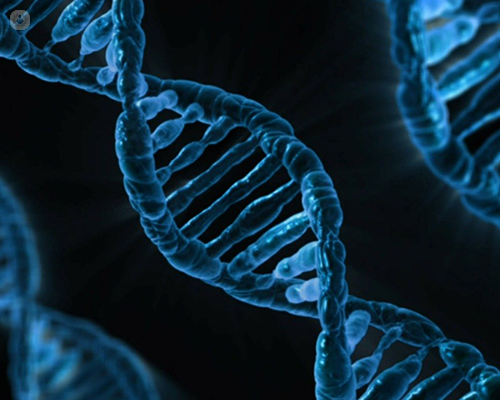CAR T-cell therapy cancer treatment
Escrito por:Cancer treatment is ever-improving, with CAR-T cell therapy being one of the recent and highly effective new possibilities for overcoming cancer. Dr Michael Potter is a leading London consultant haematologist with specialist expertise in blood cancers, as well as an avid researcher. Learn from an expert about this new and promising cancer therapy.

What is CAR T-cell therapy?
CAR T-cell therapy is a novel, complex and highly effective immunotherapy for malignant (cancerous) diseases. It involves programming individual patient’s immune active T-cells in a laboratory so that when they are returned, they are primed to seek and destroy cancer cells.
How is it done?
It involves removing T-cells (lymphocytes) from the patient’s blood as an outpatient procedure and introducing a gene for a special receptor, which targets specific proteins on the patient’s cancer cell surface. The special receptor is called a chimeric antigen receptor (CAR). The laboratory process (gene transduction) is performed in specialised pharmaceutical-grade facilities. This allows large numbers of CAR T-cells to be manufactured and stored (cryopreserved) for specific patients.
The patient then undergoes a short course of chemotherapy to suppress their immune systems. The CAR-T cells are thawed and re-infused into the patient’s vein as a single infusion. The CAR T-cells are then able to bind to the protein antigen on the membrane of the cancer cells and kill them specifically. CAR T-cells can persist for months or years and provide on-going immune surveillance against the cancer.
Can CAR T-cell therapy have side effects?
The treatment is given in hospital and there can be severe side effects related to activation of the immune system. This includes fevers, difficulty in breathing and changes in pulse and blood pressure, but these complications can usually be effectively treated. A minority of patients may also develop reversible neurological side effects relating to the cell therapy. However, after two to four weeks in hospital, most patients are discharged for follow up.
Which cancers is it currently used for?
Currently, there are two licensed CAR T-cell therapies available. These are highly effective in certain types of non-Hodgkin lymphoma and acute lymphoblastic leukaemia. We expect that CAR-T therapy will be applicable to a wide range of malignancies in the future.
Dr Potter has over 20 years’ experience in treating cancers. Visit his profile to learn how you can benefit from his first-class patient care.


